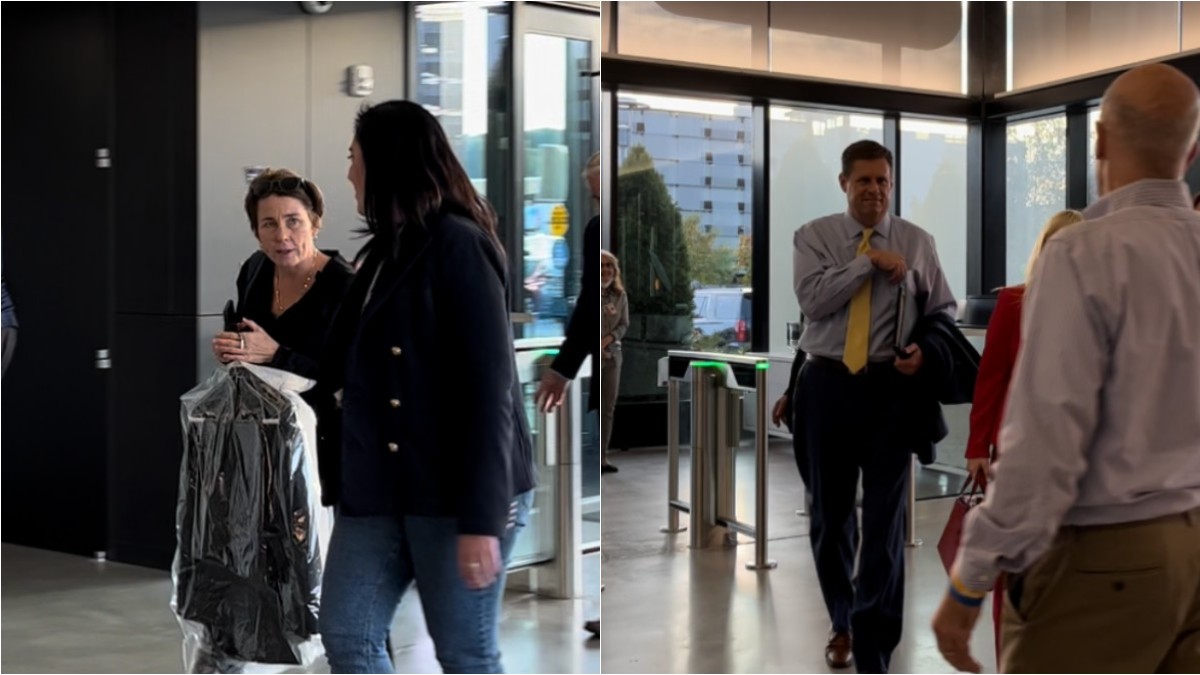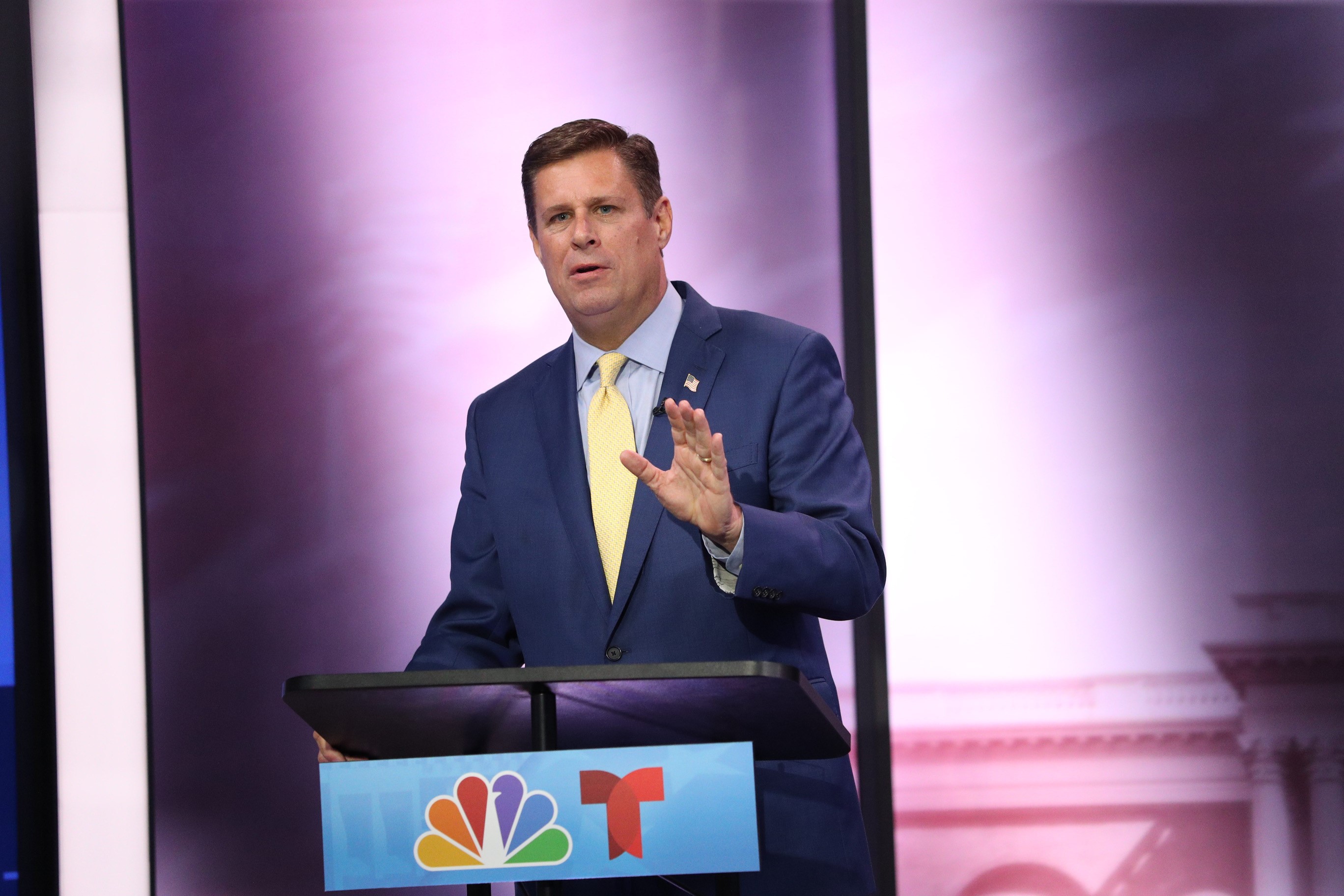Democratic Attorney General Maura Healey and Republican Geoff Diehl, a former state representative, debated their qualifications to be Massachusetts’ next governor Wednesday.
Attorney General Maura Healey and former State Rep. Geoff Diehl squared off Wednesday night in the first televised debate between the two candidates for governor of Massachusetts, tackling issues including housing, inflation, taxes, transportation, education, climate change and more.
Healey, who became the first woman and openly gay person elected attorney general in 2014, emphasized Diehl's political and ethical alignment with former President Donald Trump. Diehl, a former state representative who co-chaired Donald Trump's 2016 presidential campaign in Massachusetts, painted Healey as a fiscally irresponsible candidate.
WATCH ANYTIME FOR FREE
Stream NBC10 Boston news for free, 24/7, wherever you are. |
"You're going to hear about Donald Trump because it's Halloween time, and that's her boogeyman. That's what the media likes to talk about, is Donald Trump," Diehl said. "It's a distraction from what's important for this race. What's important for this race is making sure that our households are able to afford to live that American dream right here in Massachusetts. And so we're going to make sure that this debate is about Massachusetts tonight and not about national politics."
"Let's be clear about who we are. My opponent has said recently that he backs Donald Trump 100% of the time. He has said he wants Donald Trump to be president in 2024. He chaired his presidential campaign. He continues to play from the Trump playbook and wants to bring Trumpism to Massachusetts," Healey said. "I will continue to talk about this, Geoff, because those are values. Those are principles. Those are ways that we have rejected time and time again. And I want to be really clear with the voters about what is on the line and how high-stakes this election is."
Get updates on what's happening in Boston to your inbox. Sign up for our News Headlines newsletter.
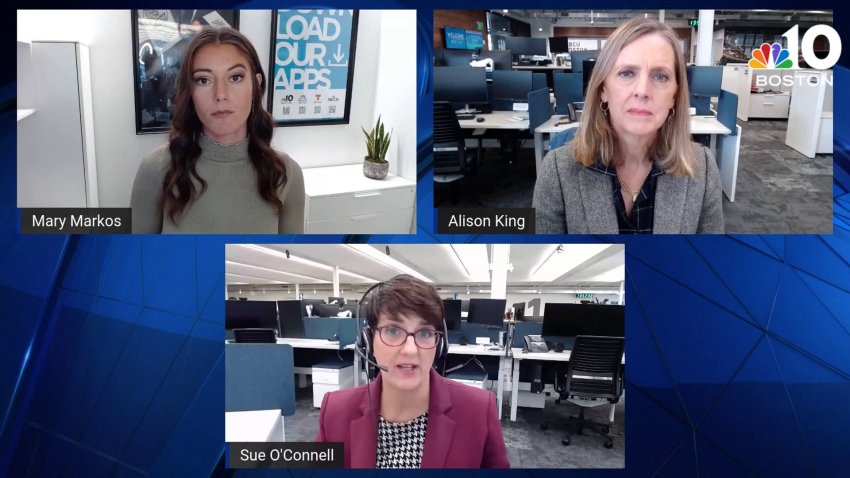
Housing
Despite rising interest rates, housing costs continue to rise in Massachusetts. Median single-family home prices hit $555,000 in August, the highest number ever recorded for the month. That's up 7.8% from a year ago and 27.6% from two years ago, according to the Warren Group's latest monthly data.
Diehl suggested expanding transportation corridors like the East-West Rail and South Coast Rail to open up other areas of the state where there is room to build affordable housing.
Healey said Massachusetts needs to acquire more housing stock across the state for various income levels, drive down the cost of transportation and fix the public transportation system.
"I'm all over the state and no matter what region we're visiting, I hear from people, residents, who can't afford gas, groceries, who can't afford rent, who sometimes can't even think about downsizing because they can't afford another house to actually purchase," Healey said. "So we've got to deal with the affordability issues. As governor, I'm going to do everything I can to make this state more affordable."
Get updates on what's happening in Boston to your inbox. Sign up for our News Headlines newsletter.
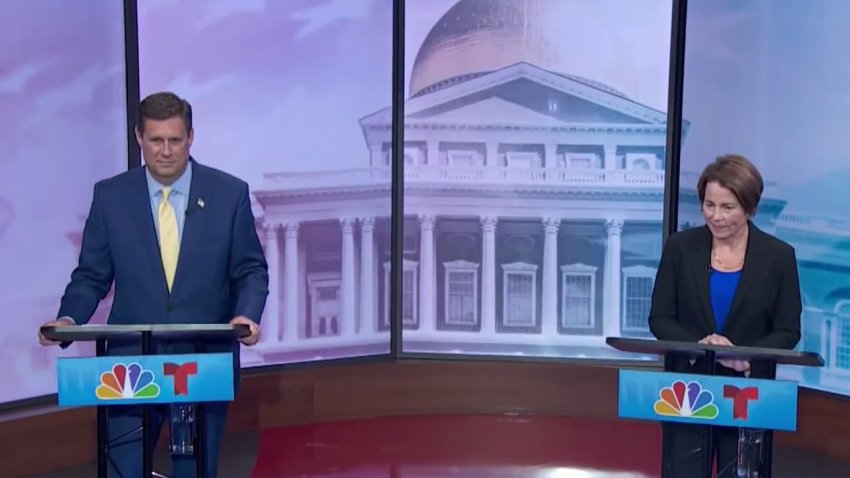
Taxes
Massachusetts is required to return just short of $3 billion in surplus tax revenue to taxpayers, state officials announced in September. State Auditor Suzanne Bump certified the Baker administration's estimate of $2.94 billion in excess tax revenue that must be returned under the 1986 voter-approved law known as Chapter 62F. It's the second time the law will return money to Massachusetts residents, leaving the Legislature with about $1.5 billion in surplus dollars to spend.
"As governor, I'm going to cut taxes," Healey said. "The Legislature needs to act and get that $3 billion in surplus out the door in checks to taxpayers. Now, second, we need to pass tax reform. Governor Baker put forward a tax plan that I support. It's going to provide tax cuts to seniors, to low and middle income families, to renters. It's also going to cut the estate tax, which is an important issue in the state, especially as we've seen housing prices increase."
Diehl criticized Healey's support of the "Fair Share Amendment," also known as the "Millionaire's Tax," as a potential deterrent for investors in the state. The first ballot question would amend the Massachusetts Constitution to put an extra 4% tax on any state resident's personal income over $1 million.
"When it comes to saving taxpayers money, she's saying she wants to cut taxes yet she has a yes on Question 1, which will drive people out of the state with an additional surtax for people making a certain income," Diehl said. "The fact is, I'm the only one who actually cut taxes when I led the repeal of the indexing of our state's gas tax to inflation back in 2014. That saved people thousands and thousands of dollars per household."
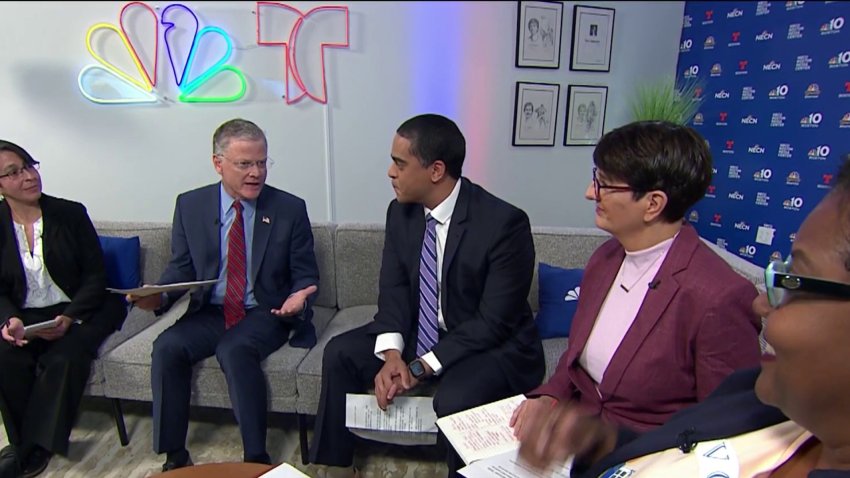
Transportation
At one point, Boston was a top-tier city for public transit and a leading example for the rest of the country. But over the years, critics say safety slipped through the cracks. Recently, the MBTA has seen injuries, malfunctions and even death. The T has been prioritizing long-term projects over safety for years, a federal investigation found.
The Federal Transit Administration began investigating the MBTA in April after a recent death and several incidents that caused injuries. The MBTA was subsequently ordered to fix safety issues in four areas in the middle of an unprecedented 30-day shutdown of the Orange Line.
Both candidates gave their views on what needs to change within the agency. Healey promised to appoint a safety chief to make sure that all rails and buses are checked, inspected, and are running in safe condition.
"I'm also going to change the way that everything is governed right now. And making sure that we have people responsible for the capital planning as well as operations," Healey said.
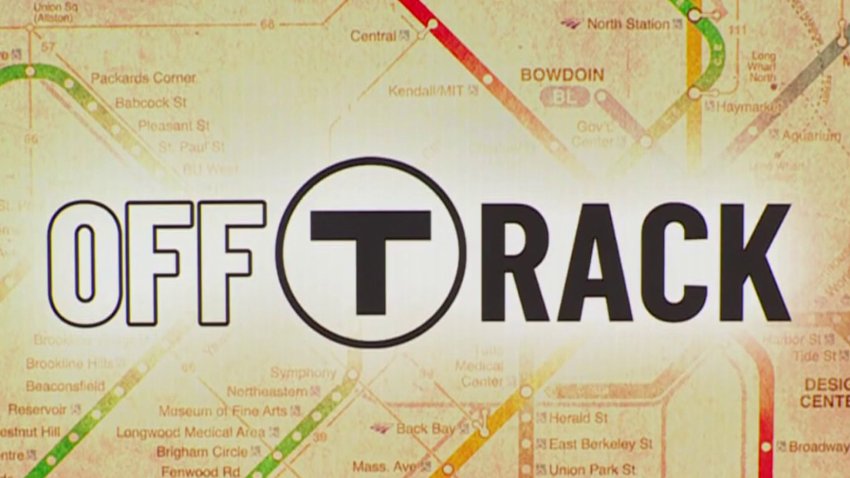
"What we need to do, I believe, is not bringing consultants to always come in and try to tell the MBTA what to do. I think we need to listen to the workers," Diehl countered. "The workers know exactly what it needs to needs to be fixed with the rail lines with the cars."
Diehl argued that the state is understaffed across all departments, including the MBTA, which he blamed, in part, on vaccine mandates for government employees.
"If they didn't get vaccinated, they lost their job. A lot of them took early retirement, more were fired," Diehl said. "And I'll tell you something, when we're understaffed at the MBTA that's why the federal government now has stepped in and is overseeing us. So one of the things on day one I'm going to do is return every state worker to their job. And day two, I want to make sure that anybody in the administration that thought stepping on people's civil rights was a good idea -- they're out of the administration."
Licenses for Undocumented Immigrants
A question asking voters to approve or repeal the new law that allows undocumented immigrants to be issued driver's licenses will appear as Question #4 on the November statewide ballot. The bill passed earlier this year despite a veto by Gov. Charlie Baker, but it has continued to spark debate.
Click here for a complete guide on the 2022 Massachusetts ballot questions.
Under the new law, people in the country illegally would be able to apply for a driver’s license starting July 1, 2023, if they could provide the Registry of Motor Vehicles with a foreign passport or consular identification document. They would also have to provide one of five additional documents: a driver’s license from another U.S. state or territory, a birth certificate, a foreign national identification card, a foreign driver’s license or a marriage certificate or divorce decree from any U.S. state or territory.
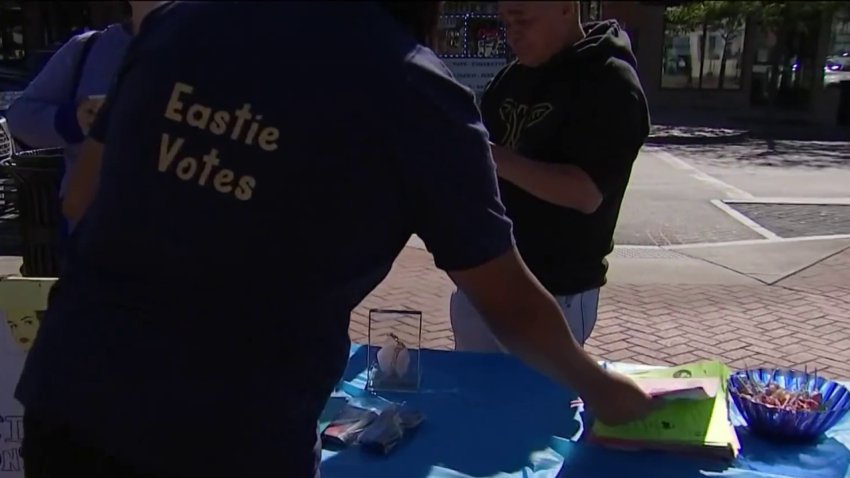
Diehl, who is working to overturn the law, argued that federal agents can't work in sanctuary cities to address crime.
"We have an immigration crisis at our southern border. We're seeing people pouring into the country and Massachusetts is a state that has cities that have sanctuary policy, meaning that if you're here illegally and you're committing crimes," Diehl said. "And so when you add driver's licenses to people who are illegally you are now incentivizing additionally, people who have broken the law and now we're going to come to Massachusetts thinking that they can just get that with no problem."
Healey countered that police chiefs across the state support the measure.
"As a fundamental matter, you want to know who is actually driving on our roads. You want to know that they've received instruction and training through a driver's ED program. And importantly, you want to make sure that they're insured," Healey said. "Most of the New England states do this states like Utah and Virginia do this. And I think it's something we need to do as a matter of safety here in Massachusetts."
Baker vetoed the law, Diehl noted. Baker, in his veto letter to lawmakers, argued the new law "increases the risk that noncitizens will be registered to vote."
Nearly 50 Venezuelan migrants were unexpectedly flown to Martha's Vineyard by the state of Florida last month. The state mobilized multiple resources to provide social services, which reignited the debate over whether or not Massachusetts should be a sanctuary state.
"I was so moved by the response of the people in Massachusetts, the people on Martha's Vineyard," Healey said. "I was really heartened by the Baker Administration and how they responded and I'm proud of our state, how we responded in that moment. And look, this was a political stunt by a person who's willing to exploit human beings for some perceived political gain. But what we need to do on immigration is we need National Immigration Reform. Too many members of his party blocked it, but we need it for our employers for our workforce. It'll solve a lot of problems."
"The crisis we have at the border is a humanitarian crisis. And what happened with flying people to Martha's Vineyard is just an outcry of the problems that states are having right now trying to deal with people coming into their state and states not being able to actually afford it," Diehl said.
Abortion
Shortly after the U.S. Supreme court overturned Roe v. Wade, Baker issued an executive order with similar legal shields for providers, which he subsequently signed into law. In Massachusetts, abortion remains legal in many cases, even though the federal protection of the right to abortions is gone.
Healey has a record of fighting to strengthen protections around reproductive rights in Massachusetts, including her support for the ROE Act, which was passed in December 2020.
"Right now in this country, politicians are pushing for a national abortion ban. The Supreme Court overturned Roe. My opponent celebrated when the Supreme Court overturned Roe. He wants to defund Planned Parenthood. He wants to jail doctors who provide abortion care, and that's a real difference in this race," Healey said. "Massachusetts needs a governor who will protect a woman's freedom to make decisions for herself. It's as simple as that. I will. He won't."
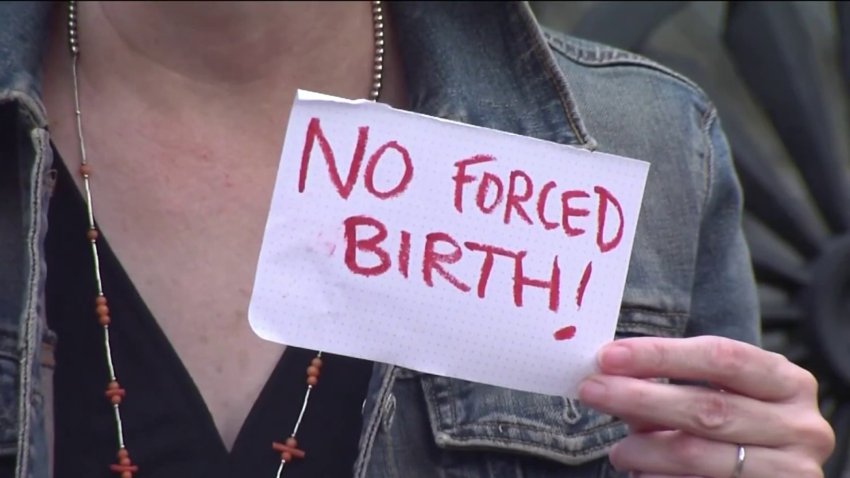
Diehl argued that decisions around reproductive rights should be left to each individual state. He drew a comparison to the issue of body autonomy to COVID-19 vaccine mandates.
"My body, my choice, in Massachusetts also, in my opinion, stands for vaccine mandates. You never stood up for people who were fired because they were forced to get a vaccine if they had developed natural immunity or had underlying health care conditions," Diehl said.
Education
Recent MCAS results showed that after two years of COVID-19 related disruptions, only 20% of elementary and middle schoolers from low-income families are meeting grade-level expectations in math, compared to about 55% of their wealthier peers. Both candidates promised to address the disparities and ensure that children who have fallen behind during the pandemic get caught up.
"Education is foundational. You know, Massachusetts is home to the first public school in the country, and we need to do everything we can to support our young people who, frankly, have experienced tremendous loss during COVID," Healey said. "And we do see the gaps. We see the gaps in math skills and reading skills. We need to make sure that we are there as a state as a commonwealth, doing everything we can to support students and their families."
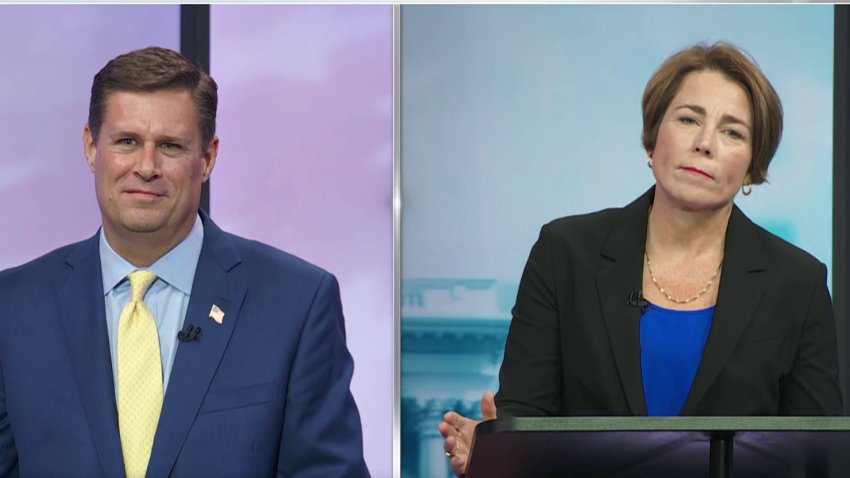
"Right now I think a lot of parents are upset about some of the curriculum that they're being presented with kids at early ages for a second third grade. My daughter had to watch a video called implicit bias that said, in order to play a sport last year, she had to recognize that she has the advantage on the athletic field and in the classroom, simply because she's white," Diehl said. "I don't think that does it. I think that does a disservice to her and to minority groups that are being told that you know, you're not going to be competitive because other people are white. That's wrong. Parents are angry about it, and they're leaving our state schools because of it."
Research shows that having a racially and culturally diverse teacher workforce is beneficial for all students. But in Massachusetts, only 9% of teachers were composed of people of color. In fact, from 2019 to 2020, one in four Black students and one in five Latino students attended a school without a single same race teacher on staff – an experience that is unheard of for white students in the state.
Diehl said that ensuring diversity is "hard," pointing to staffing shortages and hiring difficulties.
"Yes, we need to recruit and train more educators of color in our state, for the sake of our children and our young people," Healey said.
Opioid Crisis
With 2,000 opioid-related deaths over the past year and treatment centers stretched, the opioid crisis continues to have an impact on the people of Massachusetts.
"We need to continue to invest in resources for substance use disorder and mental health. We need to invest in housing, not just short-term housing for detox, but long-term housing. This is really important. We need to continue to support law enforcement as well to crack down on the trafficking, particularly of fentanyl and other synthetics," Healey said, touting over half a billion dollars she recovered by going after opioid manufacturers as attorney general, all of which is being put towards prevention, recovery, education and harm reduction.
"Last year, we lost the most people in Massachusetts to opioid overdoses in the history of our state. It is something that on day one I want to tackle right away. One of the things that we need to do I believe, is push expanded mental health services out into the suburbs," Diehl said, "And make sure that they own it, not just centralize it in areas like Worcester."
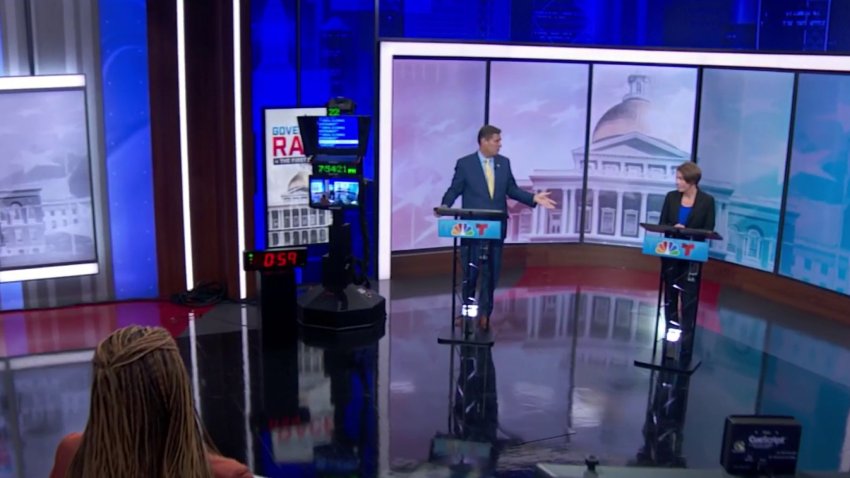
Climate Change
Healey promised to be intentional about climate change by putting someone at the top who's "going to make sure that we are driving a climate agenda through our departments of transportation and energy and housing and economic development. It's absolutely imperative and it's also an economic windfall for us here in the state."
"Climate poses a real challenge. It also creates a great opportunity for our state," Healey said. "I want to create a climate corridor that stretches the length of this state, the breadth of this state, that ties together the technology, the innovation, the manufacturing, that is happening right now, when it comes to a clean energy economy."
Diehl argued that Healey's goals aren't feasible financially.
"I'm for renewable energies, but the pace at which Maura Healey wants to do this is going to bankrupt our state. It's going to bankrupt households, and it's going to make businesses leave our state and that's going to hurt our economy in general," Diehl said. "We're really racing towards a solution that isn't even going to be able to produce the energy we need for Massachusetts in the timeframe she wants by 2030. No fossil fuels, no possible way. We're gonna go broke trying to get there."

